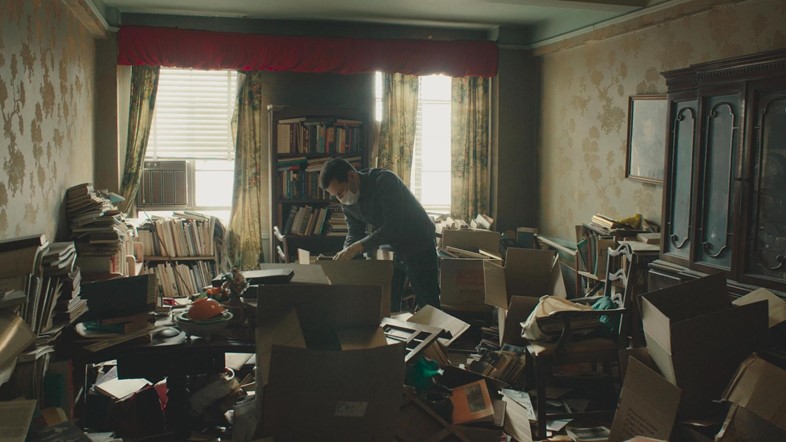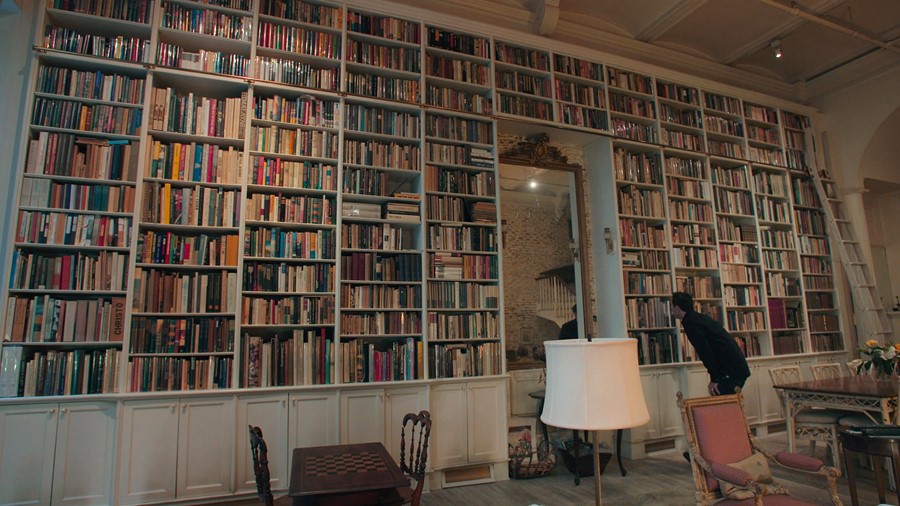Director DW Young talks to AnOther about his new film Booksellers, which lifts the lid on New York’s rare book world
When DW Young was ten years old, his aunt and uncle, who sold rare and used books at Sessler’s in Philadelphia, gave him a unique three-volume set of The Lord Of The Rings for Christmas. Housed in a hardbound box, with light tan dust jackets and brightly coloured fore-edges, Young would read and re-read Tolkien’s trilogy, reverently poring over the illustrations. “They had these wonderful big fold-out maps of Middle Earth,” remembers Young. “I still have them, they’ve followed me around.” Throughout his childhood, Young and his family would make occasional trips to Philadelphia, each time stopping in on his aunt and uncle, and each time returning with an armful of used books. “I had a great fondness for them as a kid. They felt to me like they should have existed in the 1940s, like they were from another era entirely, like they were out of time,” the director says.
It’s perhaps not surprising then that when bookseller and producer Dan Wechsler approached Young and suggested they make a documentary about New York’s rare book world, Young leapt at the chance. “Producer Judith [Mizrachy] and I were immediately taken with the idea,” he recalls. “We knew we wouldn’t have a problem finding interesting booksellers and collectors to speak with. We always had a belief that the people of this world would have a lot to offer.”

Featuring an engaging assortment of obsessives, intellects, eccentrics, dealers and dreamers, The Booksellers does exactly that. Filmed in beautifully cramped apartments, overflowing bookstores and ageing archives, the film profiles an eclectic array of caretakers and collectors who have been steering the rare books industry through decades of disruption and change. Including commentary from Fran Lebowitz, Susan Orlean and Gay Talese among others, it’s a touching and insightful portrait of a private world that Young hopes would have made his aunt proud. “Sadly they’ve both passed away, but particularly my aunt, I would have loved for her to see it.”
Filming was an enjoyable, if tantalising experience. “The frustrating thing is you never have any time to do any browsing,” says Young. “Inevitably you’re rushed for time once you’ve finished the interview and gathered all your B-roll. I always wished I could stop and just browse.” After so much time spent filming among so many old books, the sights and smells of each store have stayed with the director, a fact his subjects remained largely oblivious to. “Judith, Adina and Naomi at the Argosy Book Store often get visitors from abroad who are really taken with the smell of the store,” says Young. “They don’t notice it any more of course because they’ve been living amidst it for their whole lives.”
“One of the things I remember,” says Lebowitz mid-way through the film, recalling the height of New York’s bookselling days, “is that they were all little, dusty, Jewish men, who were very irritated if you wanted to buy a book. If it was warm, they’d be sitting outside on a box, their hands were yellow from nicotine. They always had glasses – of course because they’d been reading in the dark since they were six years old – and if you would go and ask politely, ‘How much is this book?’ half the time they wouldn’t look up.”
As for what motivates the subjects of his film, what drives them to keep doing what they’re doing despite the threat of chain bookstores and the shifting challenges of the internet? Young attributes it to a shared impulse – collecting. “Most of them have it in some form or other,” he says. “Jay Walker has a very specific idea in mind with his Library of the History of Human Imagination. Caroline Schimmel collects to help explain the experience of women in the United States since colonial times. Then you have Syreeta Gates, who’s collecting and archiving all this original hip-hop material.” These booksellers might not be able to collect for personal gratification, but the act of finding the material, restoring or reselling it, is enough. “Though they might not be able to apply it in the way that they’d like (because then they’d be spending all their money collecting books), it offers a vicarious pleasure,” Young says. “The book passes through their hands, they get to hold the stuff, they have to relinquish it, but it feeds that urge in many ways.”
The Booksellers is available on demand from June 29, 2020.
